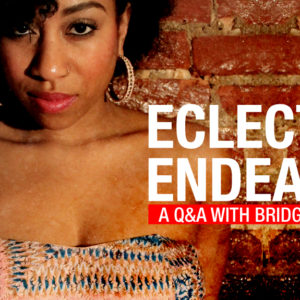“What’s Going On” is MusiQology’s weekly news round-up. Running each week, we curate a selection of relevant items from across the spectrum of popular culture, adding our own commentary and spin when it makes sense. With any luck, you’ll be able to spend a little less time browsing the web for what matters. We’ve got you covered.
Summertime Sounds
Summer is a time for barbecues, cold beverages, and live music, and Philadelphia’s robust lineup of venues offers something for everyone looking to see a show. The Theater of the Living Arts at 3rd and South Streets is probably the busiest summer spot: Bone Thugs-N-Harmony celebrated 20 years at “Tha Crossroads” at the TLA on June 2; local legend Freeway performs on June 18; and Jamaican reggae revivalists Protoje (July 7) and Tarrus Riley (July 14) are all on the calendar. As always, Chris’s Jazz Café has a full calendar of jazz, with more than seven shows per week. MusiQology favorite South is fleshing out a lineup including Chuck Loeb, local singer Kriss Mincey, Robin Eubanks, Nnenna Freelon, and more. World Café Live has a variety of other up-and-comers on their schedule. And, of course, there are the city’s summer bookend festivals, with another successful Roots Picnic (featuring Usher, Future, Leon Bridges, Blood Orange, Kaytranada, DMX, Swizz Beats, Willow Smith, and more) at Festival Pier at Penn’s Landing in early June and Jay-Z’s mega-festival, Made in America, on Labor Day weekend.
Black Skin, Light Masks
At her best, Azealia Banks is a provocative and challenging critic, whose public disputes on social media have often called attention to hypocrisies and challenges of the contemporary moment. At her worst, she is a befuddling artist whose controversies loom louder than her musical contributions and whose own inconsistencies create sometimes irreconcilable confusion. Last week, the Harlem artist posted a twenty-minute VIDEO in support of the controversial and dangerous practice of skin-lightening. “I don’t really think it’s important to discuss the cultural significance of skin bleaching anymore,” she begins, comparing the process to speaking “clear or proper English” or rhinoplasty (or, material to MusiQology, being a person of color and pursuing a PhD). “I see it as another assimilatory assimilation thing. It’s a continuation of the falsification of self that comes with being a black person in America. Respectable Negro stuff.”
The Internet was quick to criticize her roundly, as the process of skin-bleaching is very dangerous and has caused permanent physical damage and death in extreme cases. A viewing of the video that lasts past the first minute, though, does complicate the discussion by drawing a distinction between skin-lightening and bleaching and taking to task “lightening,” “brightening,” and other beauty-world terms as, essentially, bleaching. Banks is right to suggest that the anti-lightening platform is built at least somewhat on what she calls “the unwritten rules of being black,” but her message is mixed and unclear on a complicated issue. It’s right on brand.
When Beyoncé Hands a Critic Lemonade
We could probably do a whole #16Bars on thinkpieces inspired by Beyoncé Knowles-Carter’s audio-visual masterpiece, Lemonade, but instead we’d simply like to draw your attention to THIS ONE, written by Daniel José Older at Seven Scribes. Many have made hay in the weeks following the project’s release with wide speculation that has ultimately boiled down to something Older masterfully identifies: a conflation of Beyoncé-the-artist and Beyoncé-the-person. Every symbol in Lemonade is allegedly a reference to something in real life. Every lyric needs to be decoded by the…uh…geniuses over at Genius. Every villain is a Becky. While the work is undeniably autobiographical, the dissolution of Knowles’s discursive space in which to perform is an unfortunate and negative byproduct of our current media landscape.
On Guard
Over the years, there have been plenty of athletes who have attempted to break into the rap game, with efforts generally ranging from middling to unsuccessful to catastrophic. But Portland Trail Blazers point guard Damian Lillard AKA Dame D.O.L.L.A, creator of the successful weekly #4BarFriday competition on social media, might be changing that. His first VIDEO released this past December revealed a lyricism that, given his competition, is pretty strong, and over the holiday weekend, he released a remix of a Drake track, “Stay Schemin,” that is probably the best rap song ever released by a current NBA player. Lillard will mark the occasion with his first concert, at Portland’s Crystal Ballroom on July 15.
Conversations in Jazz
Among the first guard of music critics—Albert Murray, Stanley Crouch, Nat Hentoff, et al—Ralph J. Gleason stands notably as one of the form’s greatest originators. The former Rolling Stone writer, who passed away in 1975, helped found the Monterey Jazz Festival and launched the careers of Lenny Bruce, Bob Dylan, and Miles Davis, among countless others. He even wrote the liner notes for Davis’s iconic Bitches Brew in 1970. Recently released from Yale University Press is Conversations in Jazz: The Ralph J. Gleason Interviews, a collection of intense, personal interviews with many of the legends of the genre, including John Coltrane, Quincy Jones, Dizzy Gillespie, and many more.

 Share On Facebook
Share On Facebook Tweet It
Tweet It




